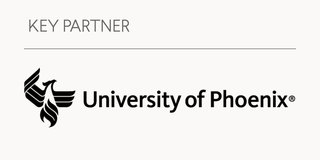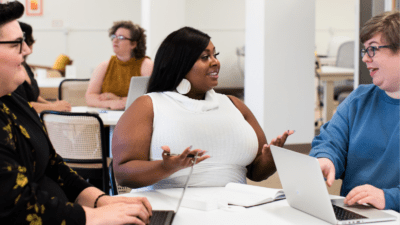Professional social capital—the resources that arise from the web of relationships we build with those around us and that contribute to our professional goals—is a key component of anyone’s career journey. It sets us up for success in the labor market, opening doors and serving as a source of information about and access to new career opportunities. It equips us with strategies, information, and resources that help us forge connections with the people we meet in the worlds of work and learning, and then strengthen those connections and expand our networks throughout our careers. And it’s a critical, yet often overlooked, element to equitable economic advancement.
For Black learners and workers, who too often grapple with discriminatory systems and practices in education and the workplace, professional social capital can unlock opportunities for greater economic advancement and mobility, ultimately reducing the racial income, employment, advancement, and wealth gaps that hold our country back. That’s why, with support from University of Phoenix, Jobs for the Future (JFF) set out to map the landscape of programs specifically designed to help Black learners and workers build professional social capital.
In this market scan, we identify five elements that we believe the most innovative social capital development programs will and must incorporate to do this. We based our conclusions on in-depth research that included a dive into the history and context of professional social capital, a comprehensive look at the programs that are doing this work and the strategies they employ, and assessments of emerging trends and areas of opportunity.





